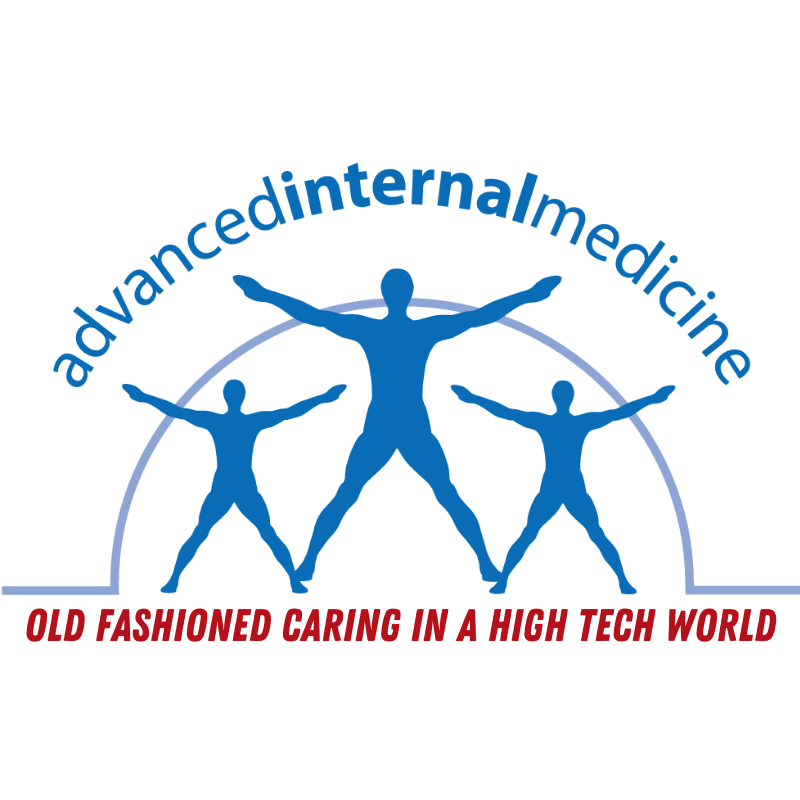Office Updates from Dr. Joel Weisblat - October 13, 2020
Dr. Joel Weisblat • September 13, 2020
Office Updates from Dr. Joel Weisblat - October 13, 2020
Dear Patient,
I hope you are enduring this seemingly endless pandemic in good health and good spirits. Attached please find a summary of my latest thoughts on Covid-19, which will soon appear on our revamped website.
In brief, although the number of cases in Cuyahoga County has thankfully declined, the number of cases in Ohio and nationally remains high, and we are hearing anecdotally of outbreaks locally which may soon send the numbers in the wrong direction. As such, although we are seeing a few patients in the office for brief and necessary visits, we still do not believe it is safe to have patients in the office for extended periods of time such as would be required for a physical exam or other routine care.
We have received our supply of flu vaccine, and will be contacting you shortly for details on how we will be administering it this year. Needless to say, a big flu clinic is not a wise endeavor under the circumstances.
Finally, I am thrilled to announce to those of you who were not aware of it that our office manager Jackie has returned to the fold. Please let her know how happy you (and we) are to have her back!
Stay safe, and please let us know how we can be of assistance during this difficult time.
Joel D. Weisblat, M.D.
Dr. Joel Weisblat's Blog

Dear Patient: There has been a lot of news about the pandemic in recent weeks, and also a lot of confusion. Today’s update is in the FAQ form, in response to many of your concerns. 1) What is the current state of the Covid-19 pandemic? Obviously, it isn’t good, but there may be reason for optimism. The number of cases nationally seems to have plateaued, albeit at a high level, and the number of people vaccinated is steadily growing. Unfortunately, in Ohio, things are likely to get worse before they get better. Case numbers in the state are averaging above 4000 daily, higher than in many months. 2) What can I do to protect myself from infection? The same things we’ve been recommending all along. Wear a mask indoors in public places, keep your distance from those who may not have been vaccinated, and of course, if you haven’t been fully vaccinated, get it done today. 3) I thought the vaccines were effective, why are people talking about boosters? The Pfizer, Moderna and J&J vaccines have all proven to be quite effective at preventing serious Covid infections. However, we are seeing some waning immunity after 6 months, which is leading to a number of “breakthrough” cases. The good news is that the vast majority of these cases are mild or asymptomatic, with no more than a few days of illness. Even 6 or 8 months after completing vaccination, you remain very unlikely to contract a serious Covid infection. 4) What is a booster shot? Should I get it, and if so, when? A booster is just another dose of the vaccine, no different that the ones you already received. It is designed to further enhance the immune system’s ability to combat the Covid virus should it enter your body in some way. The CDC currently recommends a 3rd dose of Pfizer or Moderna in those who meet their strict definition of immune compromise, or (beginning Sept. 20) in those who are 8 months out from their 2nd dose. No recommendation regarding J&J boosters has yet been made. 5) Aren’t there drugs now that can treat Covid? Two drugs have been approved for treatment of SARS-Cov-2 infections. Remdesivir is an antiviral medication that has been shown to reduce mortality and length of stay in hospitalized patients. Regeneron has created a cocktail of monoclonal antibodies (REGEN-COV), which directly attack the virus, and it has been approved for use in Covid-positive patients who are not seriously ill, and in some cases for prophylaxis. Hydroxycholoroquine (an antimalarial drug) and ivermectin (an antiparasitic drug) have not been shown to be of any benefit in fighting Covid, may in fact be dangerous, and should not be used under any circumstances. 6) What do I do if I have been exposed to Covid? A vaccinated person exposed to Covid does not need to quarantine, but should get tested several days after exposure. Vaccinated individuals who are positive do not shed as much virus as unvaccinated individuals, and so are unlikely to transmit the virus to other vaccinated individuals. Nonetheless, those who are unvaccinated or otherwise at high risk for serious Covid infection may be eligible for prophylactic monoclonal antibody treatment. 7) Where can I get treated? If you meet the criteria listed above, you are a candidate for the Regeneron cocktail. Please call the office and we can confirm your eligibility, order the injection, and direct you to a facility where you can receive it. 8) Is this ever going to end? Yes. One-third of Americans have now been infected with Covid, and over 60% of the eligible population has been fully vaccinated. This means that the pool of susceptible individuals is shrinking every day. We will reach a point where there simply aren’t enough susceptible individuals to sustain community outbreaks. The sooner people get their vaccines, the more they wear masks in risky settings, the sooner we will reach that point. Most experts believe that by early next year the virus will no longer be a serious threat in most areas of the country. 9) What can I do to do help? Encourage your friends and family who are reluctant to get vaccinated to get their shots. Keep wearing your mask indoors and practice social distancing. Let us know if you are feeling sick, so we can guide you to the appropriate treatment. And don’t despair! There is a light at the end of the tunnel. Joel D. Weisblat, M.D.

August 1, 2021 As the Delta variant roars through the country, some things have changed, and some have not. Here are my latest thoughts: 1) The resurgence of Covid-19 throughout the U.S. is real, and Ohio is starting to feel the brunt of it as well. Daily cases in the state are averaging over 1000, a five-fold increase in recent weeks, and hospitalizations and deaths are on the rise as well. 2) The reasons for this increase are threefold: the Delta variant is up to 5 times more contagious than previous variants; large numbers of Americans remain unvaccinated; and people are for the most part not wearing masks. 3) The very good news is that the vaccines seem to be holding up well, particularly the mRNA vaccines (Pfizer and Moderna). Those who have been vaccinated are much less likely to contract the virus, and if they do get infected, are dramatically less likely to get quite ill. It is estimated that less than 1 percent of those currently hospitalized with Covid were vaccinated. 4) Much has been written in recent days about the potential of vaccinated individuals to infect others, but what hasn’t always been reported is that those who are getting infected in this way are almost all unvaccinated. It still appears that vaccinated individuals without symptoms can congregate indoors with very little risk. 5) I think the most important message today is to re-emphasize the importance of wearing masks indoors. Most outdoor settings are safe, but the risk of transmission indoors is high, particularly when one doesn’t know who’s vaccinated. Wear your mask, maintain social distancing, and try to avoid crowds. 6) I would still recommend people avoid indoor restaurants, and the safety of plane travel is an open question with cases on the rise and mask requirements in flux. 7) Another question is whether an additional dose of vaccine will be necessary. There is conflicting data here, but I suspect we will be recommending people to get another dose in the coming months. Immunity does likely wane over time, though there is no evidence that fully vaccinated individuals are unprotected after 6 or 7 months. 8) Finally, I implore those of you who are not yet vaccinated to do so now. Covid can wreak havoc on your health, even if you are not in a high-risk category, and the contagion of this variant makes it much harder to avoid than the previous ones. Please contact me if I can answer any questions you may have about the safety or efficacy of this vaccine. 9) A hopeful bit of news is that the number of people getting vaccinated has picked back up, and if that trend continues, we may yet be free from this pandemic in 2022. Stay safe! Joel D. Weisblat, M.D
